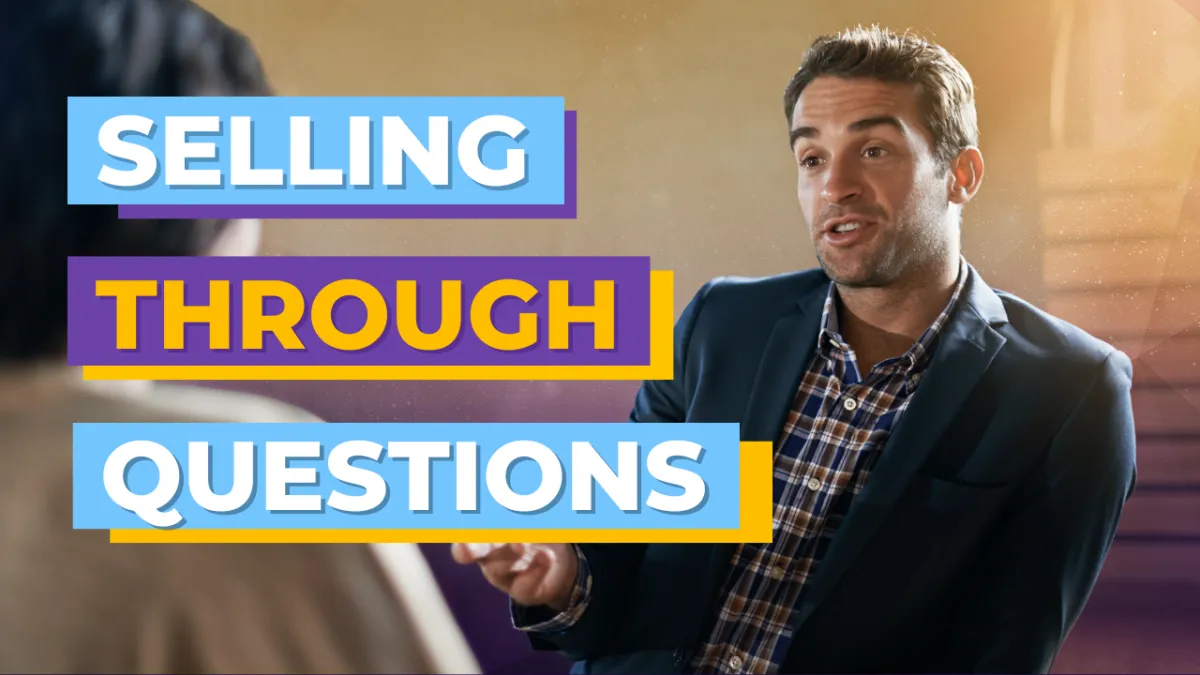
Successful Sales: Mastering the Art of Asking the Right Questions
"Telling is not selling. Speak less, listen more, and let your questions lead the way."
- Dan Rochon
In sales, success doesn’t come from flashy presentations or talking non-stop about your product. Instead, the real secret lies in the art of asking good questions. By asking the right questions—and listening closely—you uncover what truly matters to your customer, differentiate yourself from competitors, and position your solution as the natural choice.
The Power of Questions in Sales
Sales is about influence, not pressure. Customers don’t buy because you pitch harder; they buy when they feel understood. Asking intuitive, probing questions creates space for your customer to reveal their challenges, goals, and decision-making processes. When you let them talk, you gain insights competitors often miss.
Approach Sales Conversations as Conversations
Top-performing salespeople treat interactions as genuine conversations—not interrogations. Think of yourself as a trusted advisor, not a product pusher. Instead of running through a scripted checklist, ask questions based on the natural flow of the dialogue. A study from Gong.io shows that conversion rates are highest when salespeople ask 11–14 thoughtful questions throughout a conversation.
Authenticity Builds Trust
Being authentic matters more than memorized techniques. Customers can sense when you’re being disingenuous. Build real relationships by showing up as yourself, with genuine curiosity. Authentic conversations not only build trust but also increase the likelihood of customers opening up about their true needs.
Question Basics: Listen First, Ask Second
The strength of great questions comes from listening:
Before asking—to know what matters most.
After asking—to catch the hidden meaning behind responses.
Focus on open-ended questions that invite longer answers, not one-word replies. For example, instead of asking “Are you satisfied with your current system?” try “What challenges are you facing with your current system?”
Differentiate Yourself, Your Company, and Your Product
Asking smart questions sets you apart in three ways:
Yourself – You show you care by listening.
Your Company – You learn what services your customer values most, then highlight how you deliver them.
Your Product – You connect your solution’s benefits (not just features) to the customer’s unique goals.
Advanced Questioning: Go Deeper Into Customer Needs
To truly differentiate, expand your questioning into key areas:
Customer’s Situation – What are their biggest challenges? Who are their competitors? What growth goals are in place?
Your Position – Where do you stand compared to competitors? What do they do well that you can improve on?
Decision-Making – Who’s involved in the buying process, and what criteria matter most?
This approach uncovers problems you can solve and opportunities you can capture.
Balance Inquiry With Insight
While questions are powerful, customers also look to you for solutions. Balance is key—ask questions to understand, then provide insights based on their answers. For example:
“Based on what you’ve shared, one option could be [solution]. How does that align with your goals?”
This approach respects the customer’s autonomy while still guiding the conversation.
Practice and Continuous Learning
Like any skill, mastering sales questions takes practice. Use your daily conversations with colleagues, friends, and family to sharpen your listening. Seek out mentors, coaching, and tools that help refine your questioning approach. The more you grow personally, the stronger you’ll become professionally.
The Art of Listening in Sales
Questions mean little without active, empathetic listening. Listen not just to words, but also to tone, pauses, and what isn’t being said. When customers feel truly heard, they’re more likely to trust you and share what really drives their decisions.
Conclusion: Speak Less, Listen More
The most successful salespeople know that telling is not selling. Asking great questions and listening deeply helps you uncover needs, build authentic relationships, and position your solution as the best fit.
So next time you meet with a customer, remember: speak less, listen more, and let your questions lead the way.
🔥 Takeaway for Salespeople:
Sales isn’t about memorized scripts—it’s about curiosity, listening, and guiding customers to their own conclusions. Master the art of asking great questions, and you’ll master the art of selling.
